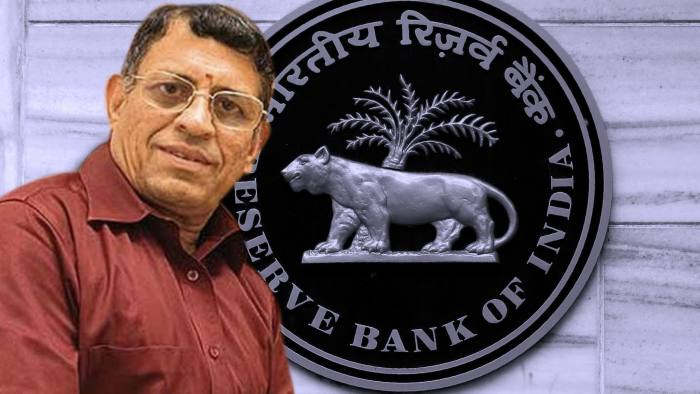RBI appoints new directors
August 10, 2018 | Expert Insights

The Indian government has appointed Swaminathan Gurumurthy and Satish Kashinath Marathe as part-time non-official directors on the Reserve Bank of India board. Analysts fear that the appointment could erode the independence of the central bank.
Background
The Reserve Bank of India (RBI) is India's central banking institution, which controls the monetary policy of the Indian rupee. It commenced its operations on 1 April 1935 in accordance with the Reserve Bank of India Act, 1934.Following India's independence in 1947, the RBI was nationalised on 1 January 1949.The RBI plays an important part in the Development Strategy of the Government of India. It is a member bank of the Asian Clearing Union.
The general superintendence and direction of the RBI is entrusted with the 21-member central board of directors: the governor; 4 deputy governors; 2 finance ministry representatives; 10 government-nominated directors to represent important elements of India's economy. 4 directors are appointed to represent local boards headquartered at Mumbai, Kolkata, Chennai and New Delhi. Each of these local boards consists of 5 members who represent regional interests, the interests of co-operative and indigenous banks.
In a rare move the union government has appointed Mr. Gurumurthy to the board of the RBI, he took his seat earlier this week alongside 16 other board members. What sets him apart is his staunch political leanings in an institution which has so far maintained as apolitical an image as possible. Swaminathan Gurumurthy is a right- wing activist and economic commentator, who has been a regular critic of RBI policy and made a name for himself as an architect, of Narendra Modi’s demonetisation policy.
The announcement of his appointment earlier this week has been met by protests from the opposition party, and concern among some economists, who worry it will erode the independence of India’s central bank. “His new role carries zero power, but it does give him a seat at the table, and his views will have to be listened to,” said Rupa Subramanya, a Mumbai-based economist.
Mr. Gurumurthy has made his name advocating a type of economic nationalism that is hostile to foreign capital and opposed to privatising India’s state-owned companies. Last year he accused the RBI of “destroying Indian business” and trying to force the government to privatise the country’s highly-indebted public sector banks. His former organisation, the Swadeshi Jagran Manch, is currently leading the opposition to Walmart’s proposed $16bn investment in the online retailer Flipkart.
The RBI has been persistently independent, thus invariably the most highly respected of India’s governing institutions. For instance, during his tenure, Mr. Rajan stood his ground and refused to cut interest rates faster, despite criticisms from the government. In his new role as a non-official, part-time RBI director, Mr. Gurumurthy will carry little formal power. But some worry that following Mr. Rajan’s departure and the implementation of demonetisation with little input from his successor Urjit Patel, Mr Gurumurthy’s appointment represents another diminution of the RBI’s independence.
Governments have come under fire before for making political appointments to the RBI’s board — the previous Congress government appointed Rajeev Gowda, one of its spokespeople, as a member in 2011. Congress officials, however, point to Mr. Gowda’s background as an economist and former post-doctoral fellow at Berkeley university in California, adding that Mr. Gurumurthy is a far less qualified candidate. Some believe the biggest significance of Mr. Gurumurthy’s appointment is not his role at the bank, but what it says about the government’s shifting economic priorities.
Counterpoint
The RBI central board is typically not a decision-making body and is more a forum for discussion. However, decisions such as the recent demonetisation decision or a move to change the RBI’s dividend policy would go through the central board. But interest rate decisions are outside the purview of the board.
Assessment
Our assessment is that it is imperative for any central monetary authority in any country to be independent; it must be bereft of political pressure. We feel that the decision-making capacity of the RBI’s central board is very limited, hence the recent appointment is not a grave cause of concern. However, we believe that only a non-partisan central banking institution can ensure that the country’s economy is stable and sustainable.








Comments